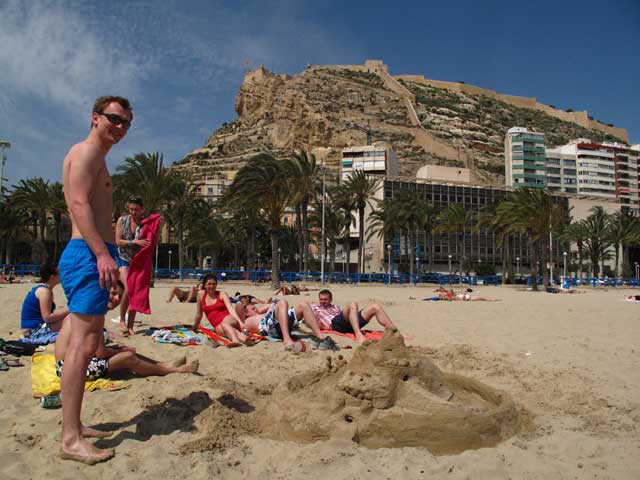Simon Calder: Feelgood factor is as fleeting as a cloud of confetti
The man who pays his way

Sunshine, celebration and an apparent end to the recession: the eternal optimists in the travel industry will seize upon every fragment of good news to detect the first blossom of a successful summer. Certainly, inbound tourism businesses from hoteliers to souvenir sellers will relish the priceless publicity that accommpanied the royal wedding. Other world cities – New York, Shanghai, and Paris (wherever that is) will envy the altar-to-balcony media coverage that London has enjoyed this week. But for outbound package-holiday companies, whose main summer season begins this weekend, the feelgood factor seems to be as fleeting as a cloud of confetti.
The past year has brought all manner of travel traumas. A volcanic eruption in Iceland closed airspace over much of northern Europe. Holiday firms collapsed in the middle of last summer. Then there was the Yuletide snow shutdown at Heathrow, followed by Foreign Office warnings against travel to a miscellany of tourist destinations, and strikes by workers unhappy with their pay or workload.
So you might imagine that wise travellers will play safe by buying a package holiday rather than constructing a do-it-yourself itinerary online. Book a flight-plus-accommodation deal in a single transaction from a reputable operator, and you transfer the burden of risk to the holiday company. When you are grounded at Gatwick, or discover the resort hotel has yet to be finished, the tour operator is obliged to look after you. So the summer should look rosy for the likes of Thomson, Thomas Cook and their smaller rivals.
But the evidence from the market intelligence specialists GfK Ascent suggests the package holiday market is as drowsy as an American air-traffic controller. The number of bookings last month fell 15 per cent, year- on-year. Sales appear to have fallen off the same travel cliff whose recent victims include sterling (after trawling London bureaux de change this week the best I got was €1.10 for each puny pound).
The "gold standard" of a fortnight on a beach has slumped, with many families trimming three or four days from the usual 14-night holiday to keep it affordable. The financial certainty of an all-inclusive holiday is proving tempting: all-you-can-eat-and-drink packages now account for 36 per cent of summer bookings, up from 31 per cent in 2010.
The promiscuous nature of the British holidaymaker is evident from dramatic swings in preferred destinations. You would expect Egypt and Tunisia to cede ground after the political unrest earlier this year, against a tragic background of terrorist attacks on tourists at destinations across North Africa.
Yet the biggest loser this year has been Turkey. After years of strong growth, which took it to second place behind the perennial favourite, Spain, Turkey has fallen to third – overtaken by Greece – despite the strife that began a year ago, and which continues tomorrow with a nationwide port and rail strike.
The prevailing air fares this weekend show that Spain is seen as our safe haven, reflecting a public need for both meteorological and political stability. Monday afternoon's easyJet flight from Malaga to Gatwick has been selling at £445, one way. That is a scary sixpence for every second you spend in the sky.
In contrast, you can fly out from the Sussex airport on Monday morning for a week on a Thomson package to the Greek island of Thassos, including transfers and a hotel room, with breakfast. The price, from a test booking I made on Thursday: £270, and that's for a couple. Less than £20 per person, per day, for a fine May escape. Get travelling.
A report destined for the ash tray?
"The particles of explosive ash that reached Europe in the jet stream were especially sharp and abrasive over their entire size range." That analysis by Danish and Icelandic scientists, as published this week by the US National Academy of Sciences, is bound to be seized upon by the aviation authorities who closed northern Europe's skies a year ago after the eruption of Eyjafjallajökull. They warned that windshields could be "sandblasted" and engines would have seized up had they been allowed to take off.
Yet, as one of the millions of travellers whose journeys were wrecked by the wholesale grounding of flights, I don't share the researchers' certainty. An exclusion zone around an erupting volcano is eminently sensible, but there are limits. I can't quite see how any particle big enough to shut down an engine could be carried hundreds of miles from Iceland to Britain.
Join our commenting forum
Join thought-provoking conversations, follow other Independent readers and see their replies
Comments
Bookmark popover
Removed from bookmarks